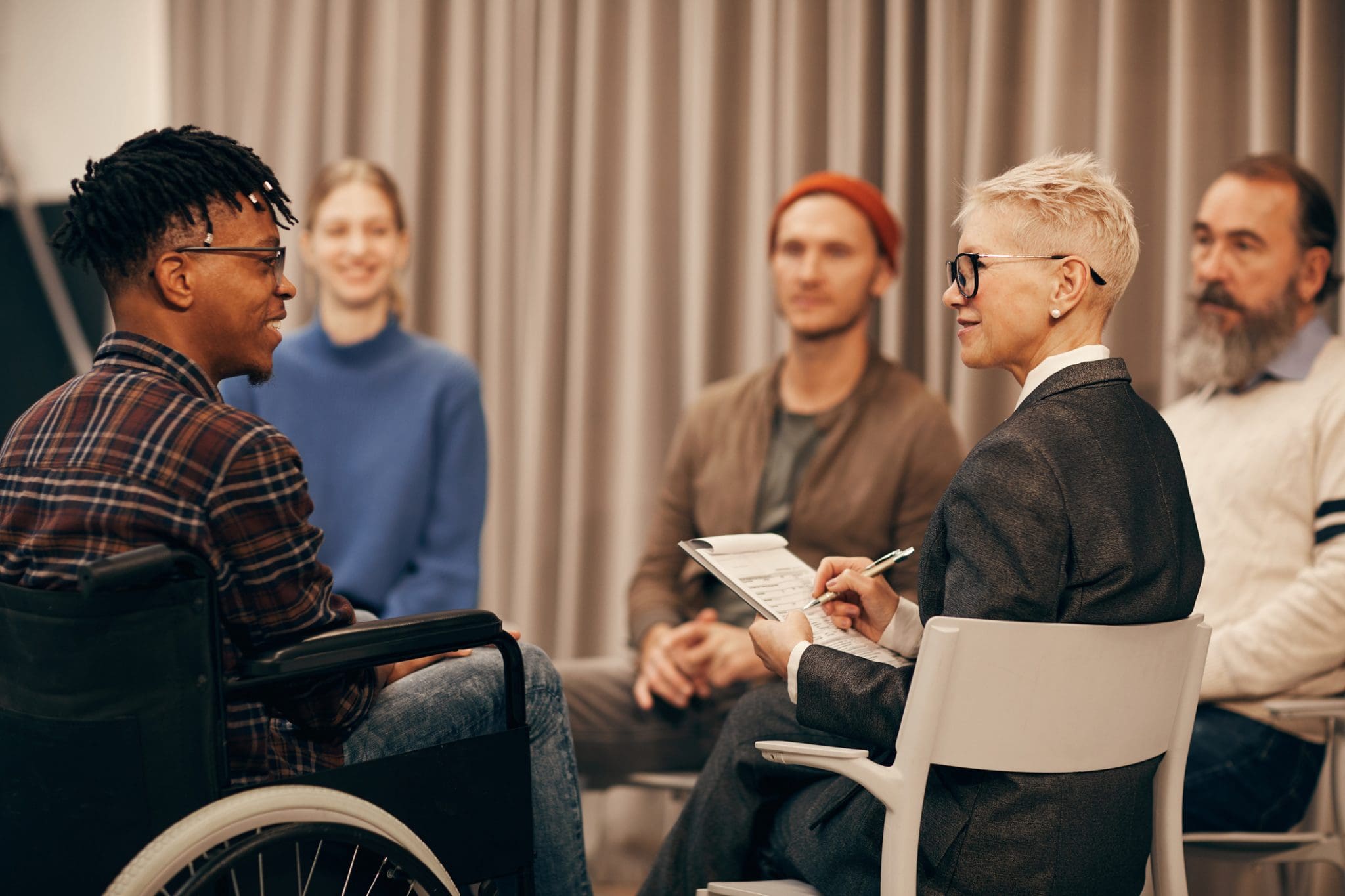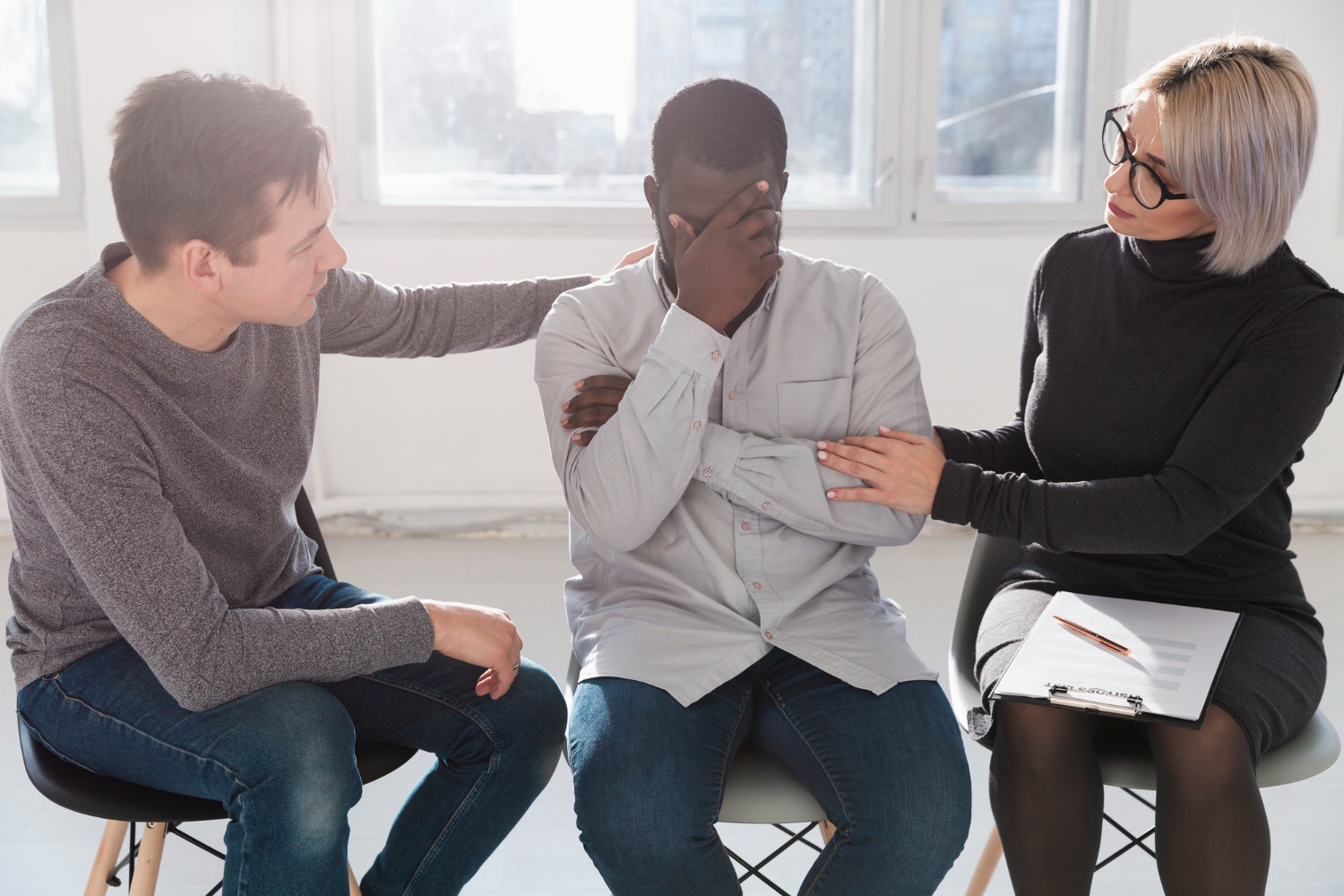Feeling depressed is a normal emotion for many people at times. However, being stuck in a major depressive episode is not. Depression can begin to impact individuals in their teen years and can be affected by medications, trauma, or other situational events in a person’s life.
People struggling with depression and the behavioral changes that are recognized with that can access support through Atlanta Recovery Place. Through our Atlanta outpatient treatment programs, individuals struggling with the symptoms of depression can learn how to successfully identify stressors and learn to manage the side effects of major depressive disorder. Contact an admissions counselor today to see how our Atlanta Recovery Place programs can support your overall mental and physical health.
What is Major Depressive Disorder?
Major Depressive Disorder is a common mental illness that impacts 8.4% of Americans. As a mood disorder, major depressive disorder affects an individual’s ability to function. Depression can occur as a primary disorder or as a secondary symptom of another physical or mental illness.
The DSM-5 defines major Depressive Disorder using the following criteria:
- A depressive episode, or a period of time in which symptoms of depression are prevalent, lasts at least two weeks and impacts a person’s daily life.
- The symptoms of a depressive episode were not caused by another condition, drug use, or medication.
Major Depressive Disorder impacts 21 million people in the United States and affects 18-25-year-olds at an extremely high rate. Approximately 17% of 18-25-year-olds experience a depressive episode significant enough to receive a major depression diagnosis.
If you are concerned that you may be experiencing a major depressive episode, it is essential to know the symptoms and what to look for.
What are the Signs of Major Depressive Disorder?
Some signs of major depressive disorder are consistent amongst individuals struggling with the disorder. To be diagnosed with a major depressive disorder, an individual must experience these symptoms and feelings for a period of two weeks or longer. Symptoms lasting for fewer days may be described as situational depression and is often able to be worked through without treatment or medication.
According to the National Institute on Mental Health, individuals who struggling with depression may experience symptoms from the following list:
- Persistent feelings of sadness or anxiety
- Persistent feelings of hopelessness
- Irritability
- Loss of interest in hobbies and social activities
- Decreased energy
- Difficulty concentrating
- Insomnia
- Drastic appetite or weight changes
- Thoughts of death or suicide
This list is not exhaustive. Additional symptoms may imply other disorders or result from extended depressive episodes.
How Does Major Depressive Disorder Impact Behavior?
Individuals struggling with the symptoms of major depressive disorder will often present struggles to adapt behaviorally to familiar situations. This is due to the oppressive feelings evident in depressive disorder. For example, individuals experiencing or diagnosed with depression will not want to participate in beloved activities, may lash out in anger, or experience exhaustion.
Behaviorally, individuals struggling with depression may present differently in situations where standard behavior is expected.
How to Find Treatment for Depression in Atlanta
Depression is a treatable mental illness. There are medications, therapies, and treatments available through treatment centers.
At Atlanta Recovery Place, we offer Georgia intensive outpatient treatment designed to address mental illnesses and addiction. Behavioral changes are expected in individuals struggling with mental illness, and at Atlanta Recovery Place, we have trained professionals ready to support individuals who are attempting to make those changes.
Our Atlanta recovery center has intensive and standard treatment programs that address the concerns of the individual. These programs bring counseling and group therapy together to create a holistic treatment program that addresses the behavior and the thought process behind those decisions.
Call us today if you are ready to get treatment for depression in Atlanta.









